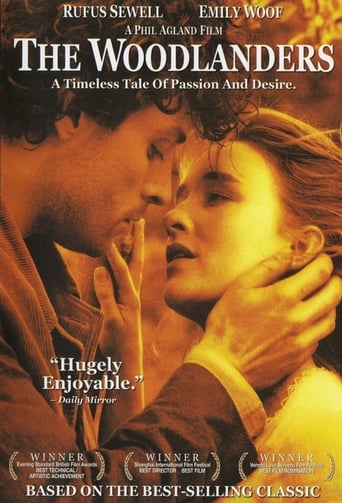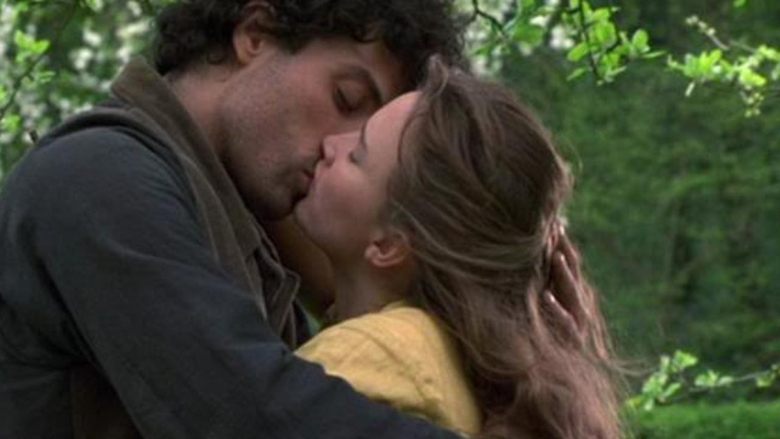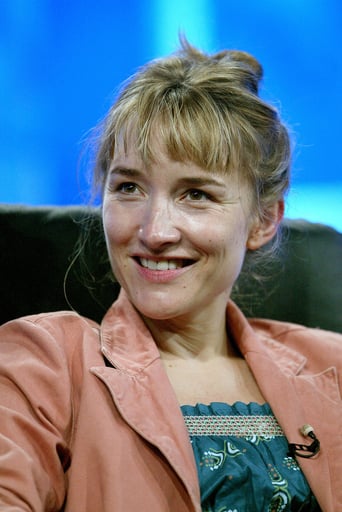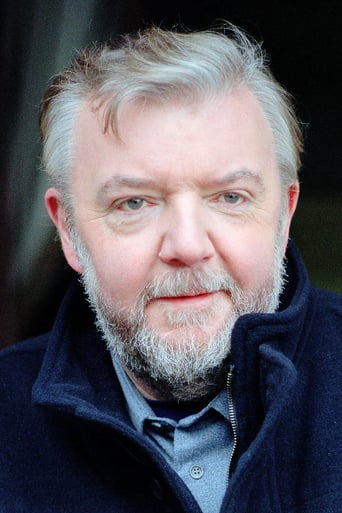

The Woodlanders (1998)
The story is set in late 19th century rural corner of South England. The daughter of timber merchant Melbury, Grace, returns to the town after finishing school. Her father now believes she can find a better husband than her childhood sweetheart, woodsman Giles. She marries handsome young doctor Fitzpiers, but soon finds out he's not the man of her dreams and she still loves Giles.
Watch Trailer
Cast


Reviews
Despite his prominent position in the canon of English literature, Thomas Hardy has never really been a mainstay of the cinema in the way that, say, Dickens or (at least in recent years) Jane Austen have been. Although there have been occasional excellent Hardy adaptations, such as Schlesinger's "Far from the Madding Crowd" or Polanski's "Tess", a number of his novels have never been the subject of a feature film. There were, however, television adaptations of two of his novels in the mid-nineties, "The Return of the Native" in 1994 and "The Woodlanders" three years later. I deliberately watched the two films over the same weekend for the purposes of comparison. The two novels have basically similar plots, both being organised around a "love pentagon" along the lines of "A loves B, who loves C, who loves D, who loves E", although in "The Return of the Native" things are complicated by the fact that D (Eustacia) still has feelings for C (Wildeve) despite her marriage to E (Clym). In "The Return" the pentagon involves three men and two women; in "The Woodlanders" it is the other way round. A is Marty South, a young peasant girl who is in love with the woodsman Giles Winterborne (B), but he is in love with his childhood sweetheart, Grace Melbury (C). Grace, however, rejects Giles's proposal of marriage under pressure from her nouveau-riche father, who regards him as being not good enough for his daughter. She eventually marries the well-born young doctor Edred Fitzpiers (D), but the marriage is not a happy one and he begins an affair with a rich widow named Mrs. Charmond (E). Hardy regarded "The Woodlanders" as one of his best novels, and many contemporary reviewers agreed with that assessment, but twentieth and twenty-first century critics have not always followed suit. Certainly, as a film this version is not anywhere near as good as "The Return of the Native" which contained some excellent acting performances, especially from the young, pre-stardom Catherine Zeta Jones. The main weakness is the casting of Rufus Sewell as Giles. Giles Winterborne is reminiscent of some of Hardy's other characters, notably Gabriel Oak in "Far from the Madding Crowd" and Diggory Venn in "The Return of the Native". All three are plain and simple countrymen, decent and uncomplaining, who patiently and faithfully continue to love a woman despite an initial rejection. The difference is that Giles is the tragic hero of "The Woodlanders", whereas Gabriel and Diggory are eventually rewarded for their patience. (In those two novels the full force of the tragedy falls upon others). Sewell, however, seems to mistake Giles's patient stoicism for stolidity and lack of emotion, and plays him throughout as a dull, unresponsive fellow, wearing virtually the same expression, one of hangdog resignation, in every scene. I was surprised to see him smile briefly at one point, but presumably he needed to keep a second expression in reserve, just in case the first one should get worn out through overuse. None of the other acting contributions stand out, and Emily Woof makes a bland and forgettable Grace. The most memorable thing about her is her odd surname; I had to see it in print several times before the penny finally dropped and I realised that she was not called "Emily Woolf". (Just as it took me a long time to realise that Uma Thurman really was called "Uma" and not "Una"). As with most British "heritage cinema" productions the costumes and period detail are well done, and the woodland scenery is attractive, but this is far from being the best historical drama of recent years. 6/10
The Woodlanders is a complex but beautiful book, apparently Thomas Hardy's personal favourite of his work and you can see why(with me though it's Tess of the D'Urbevilles and Far from the Madding Crowd). Any adaptation of any book by any author deserves to be judged in some way on their own. Compared to the book this 1997 film adaptation of The Woodlanders does fall short, but it still has a lot of great things about it. The most underwhelming aspect was the ending, which was far too frantic- the adaptation also takes too much time to set up, so there were a couple of pacing issues here and there- and sudden, anti-climatic too. It would have been more powerful if Marty South's declaration of undying love was kept intact and if there was a sense of Hardy's depiction of how devastating and too-late-to-change coincidences can be. The film does feel too short, which might be a reason for why the ending was as it was and the lack of depth(too much of skimming-the-surface-but-not-enough-meat quality to it) and why characters like Mrs Charmond and Marty South seemed too briefly introduced and underused. The production values however are exquisite, especially the rustic and colourful scenery and cinematography that is sensitive and shimmering that strikes the right balance between not being too cinematic or too TV bound. The interiors are appropriately atmospheric(in a gloomy sort of way). The costumes and period detail are evocative, with little over-bleakness or too-cleanliness about them. And the lighting visually appeals- making long shots/scenes even more interesting than they already are- and matches the moods of each scene. George Fenton's music score has a lot of beautiful sweep and passion, underlying the tragedy of the story convincingly but not obviously, unsurprising seeing as Fenton's music has always had that effect, while the script is literate and true in spirit to Hardy's prose. The story may lack the depth of the book and the beginning and end have pacing lulls, however it is still told beautifully and compellingly with faultless mood contrasts, and deserves further credit for matching the slow but spacious pacing of the book, handling the romance subtly, the rural if at times gloomy atmosphere it evokes and for how well it makes an effort to convey how the characters would interact, speak and behave. Phil Agland does a solid job directing, really not bad for a feature film debut. Rufus Sewell is a smouldering and affecting Giles, the character we feel the most for. Emily Woof's Gracie is luminous and strong-willed as well as equally touching, it's a different character for her and she acquits herself very well. Cal Macaninch is suitably sly and snobbish, while Polly Walker makes a sinister impact, Jodhi May is a sympathetic Marty South(more so than in the book) and Tony Haygarth makes for a very ideal father-figure, of the firm yet warm and well-intended kind. All in all, falls short but it is well made and earnestly done. 7/10 Bethany Cox
I haven't the slightest idea what a spoiler is and I doubt whether many folks who are not film buffs will know either, so I'll just have to hope that my comments don't enter that category and request that you use a non-jargon word in order that us ordinary punters can understand.I cannot agree with comments made concerning the scenes dragging or the film itself lacking cinematic scope. Some critics have taken this view but I believe this is rather an indication of how susceptible critics can be to saying what they think people will expect them to say (whilst conveying the distinct impression that they are the most bravely objective critics in the world).No, this is a film which refuses to go at the pace expected of it but, rather, courageously moves at the precise pace demanded of it by the overall direction and approach. I am glad I haven't read the book because it might have tempted me to try to make a like-for-like comparison and thereby go on to make erroneous deductions.The two mediums, film and literature, demand different approaches and, to me anyway, this thoughtfully filmed tale is at ease with itself and that is all we can ask of it. It is not trying to be Gone With The Wind or even Pride and Pejudice, nor should it make the attempt.Like Bleak House, it will completely glide past the attention span of the viewer who is anxious for untimely progression or who is not mentally prepared for its purposely ponderous and understated theme. What I would suggest, most humbly, is that anyone with doubts set aside a whole evening with nothing else planned and no interruptions possible. Then forget anything you have previously experienced concerning this tale and view it afresh. Put away any cynical prejudgement and consciously assume that the film's understated acting is fully intended as such. Then I believe your experience and enjoyment of this film will improve no end.The director was no doubt under immense pressure to make this tale more paced and juicy. I, for one, fully commend him for resisting this and producing a magnificently restrained U film, a truly English shared countryside, domestic and subtly romantic experience - at least for anyone allowing it the space to embrace them. VNP.
Thomas Hardy wrote such classics as Tess of the D'Urbervilles and The Mayor of Casterbridge, yet he always maintained that his best work was the often overlooked The Woodlanders. This film version is first-rate. I saw it a week after I saw the mega-budget Titanic, and I actually found this film more moving and more engaging that the costly James Cameron epic.The story is faithful to the book, but omits some of the peripheral details. It's about a young woman who returns to a close knit woodland community after several years away. In that time, she has become an educated lady, and she finds it quite difficult to relate to the people she once grew up with, having experienced wider and more varied cultures. Her childhood sweetheart is a simple woodcutter, and she feels that she is now too "good" for him, so she forsakes her fondness for him and marries a wealthy and educated doctor, with tragic consequences.The film was filmed in the New Forest (a gorgeous area of England) and it is a visual treat from first frame to last. The scenery is simply ravishing. Furthermore, the performances are very thoughtful and persuasive, complementing the sharp and carefully worked out script. This is definitely one of the best adaptations of a Thomas Hardy novel, and it can stand alongside Polanski's Tess and Schlesinger's Far From the Madding Crowd with its head held high.




